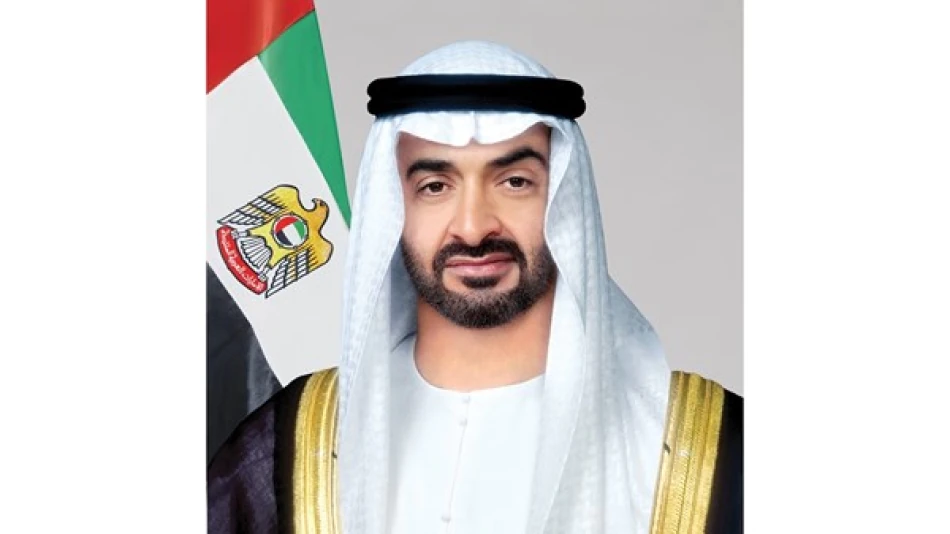
State Leader Honors Institutions with 'Parent-Friendly Workplace' Quality Mark
UAE President Champions Work-Life Balance as Foundation for National Development
The UAE is positioning family stability as a cornerstone of its broader economic and social development strategy, with President Sheikh Mohammed bin Zayed Al Nahyan personally recognizing organizations that support working parents. This high-level endorsement signals the Emirates' commitment to creating sustainable workforce policies that could set new regional standards for employee welfare and productivity.
Presidential Recognition for Parent-Friendly Workplaces
During a ceremony at Al Bahar Palace in Abu Dhabi, President Sheikh Mohammed bin Zayed honored institutions that received the "Quality Mark for Parent-Supportive Work Environment" in the third cycle of a program launched by the Abu Dhabi Early Childhood Authority. The presidential involvement underscores how seriously the UAE leadership views the intersection of family welfare and economic competitiveness.
The President emphasized that supporting family cohesion serves as "the cornerstone of building society," noting its crucial role in instilling national and humanitarian values while raising generations capable of contributing effectively to the country's comprehensive development journey.
Strategic Workforce Development Through Family Support
Beyond Traditional Employee Benefits
The initiative represents more than conventional workplace perks—it's a systematic approach to creating institutional cultures that recognize parenting as compatible with professional ambition. The President stressed the importance of institutional awareness in providing parent-supportive environments as part of positive organizational culture, enabling employees to balance child-rearing responsibilities with career advancement.
Measuring Success and Expansion
The program has demonstrated "distinguished positive results" in its current cycle, with increasing institutional participation indicating growing recognition of its value. This upward trajectory suggests the UAE is successfully embedding family-friendly policies into its corporate culture rather than treating them as optional add-ons.
Regional Leadership in Human Capital Strategy
The UAE's approach mirrors successful models in Singapore and Nordic countries, where government-backed family support policies have contributed to both higher birth rates and increased female workforce participation. Unlike purely market-driven initiatives, the Emirates' presidential endorsement provides institutional weight that could accelerate adoption across both public and private sectors.
This strategy also positions the UAE advantageously against regional competitors like Saudi Arabia and Qatar in attracting international talent, particularly skilled professionals who prioritize work-life balance. As the Gulf states compete for human capital in their economic diversification efforts, family-friendly policies become a differentiating factor for expatriate recruitment and retention.
Economic Implications for the Emirates
The emphasis on supporting working parents aligns with the UAE's broader Vision 2071 goals of becoming the world's best country by its centennial. By investing in family stability now, the Emirates is essentially investing in its future workforce quality and social cohesion—factors that directly impact long-term economic competitiveness and innovation capacity.
The high-level attendance at the ceremony, including crown princes, ministers, and senior officials, demonstrates the policy's integration into the UAE's governance structure rather than its treatment as a standalone social program. This institutional embedding suggests sustainability beyond individual leadership tenures and indicates the policy's elevation to strategic national priority status.
Most Viewed News

 Layla Al Mansoori
Layla Al Mansoori






